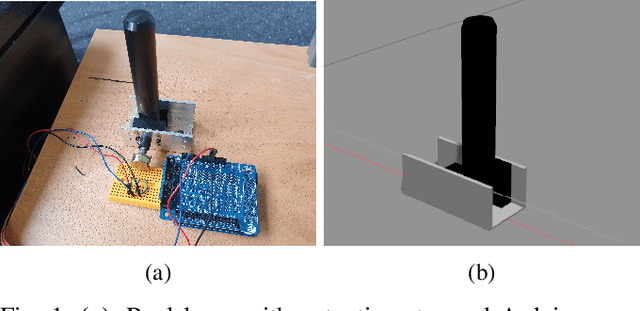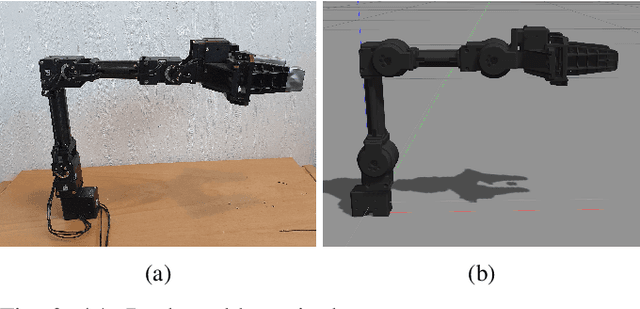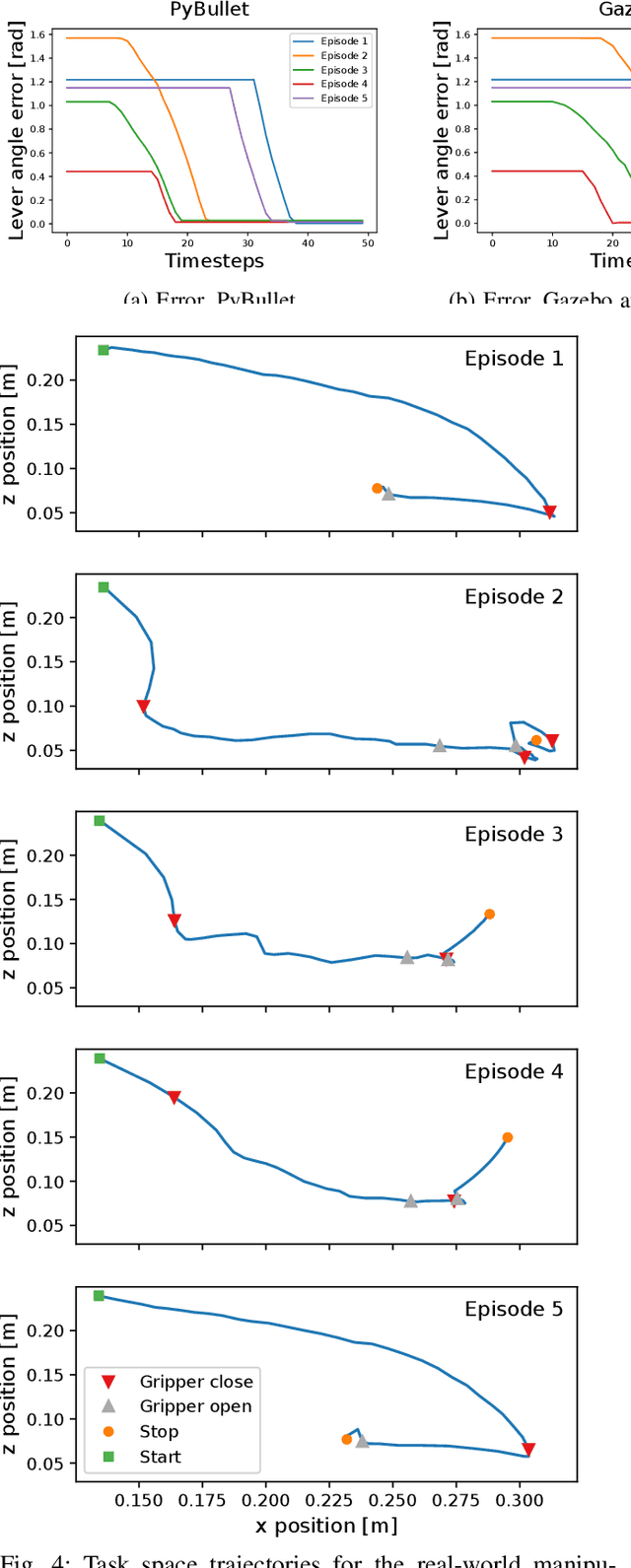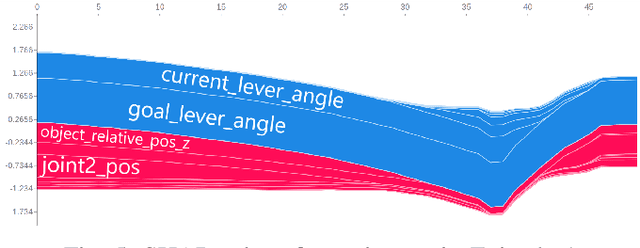Robotic Lever Manipulation using Hindsight Experience Replay and Shapley Additive Explanations
Paper and Code
Oct 07, 2021



This paper deals with robotic lever control using Explainable Deep Reinforcement Learning. First, we train a policy by using the Deep Deterministic Policy Gradient algorithm and the Hindsight Experience Replay technique, where the goal is to control a robotic manipulator to manipulate a lever. This enables us both to use continuous states and actions and to learn with sparse rewards. Being able to learn from sparse rewards is especially desirable for Deep Reinforcement Learning because designing a reward function for complex tasks such as this is challenging. We first train in the PyBullet simulator, which accelerates the training procedure, but is not accurate on this task compared to the real-world environment. After completing the training in PyBullet, we further train in the Gazebo simulator, which runs more slowly than PyBullet, but is more accurate on this task. We then transfer the policy to the real-world environment, where it achieves comparable performance to the simulated environments for most episodes. To explain the decisions of the policy we use the SHAP method to create an explanation model based on the episodes done in the real-world environment. This gives us some results that agree with intuition, and some that do not. We also question whether the independence assumption made when approximating the SHAP values influences the accuracy of these values for a system such as this, where there are some correlations between the states.
 Add to Chrome
Add to Chrome Add to Firefox
Add to Firefox Add to Edge
Add to Edge